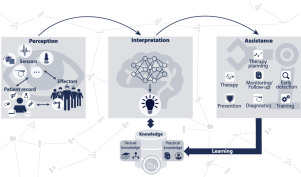Data science is an interdisciplinary field that uses various techniques and theories from mathematics, statistics, computer science, and information science to extract knowledge and insights from data. It encompasses data preparation, problem formulation, analysis, solution development, and presentation of findings to inform decision-making across diverse domains. Data scientists blend programming skills with statistical knowledge to create actionable insights from often large and complex datasets, including structured and unstructured data like text and images.While data science shares overlaps with statistics and data analysis, key distinctions exist. Statistics often emphasizes quantitative data and descriptive analysis, whereas data science handles both quantitative and qualitative data, prioritizing prediction and action. Data analysis typically involves smaller, structured datasets and focuses on answering specific questions, while data science tackles larger, more complex datasets and employs machine learning to build predictive models. Data science’s iterative process includes data preprocessing, feature engineering, and model selection, extending beyond the descriptive insights of data analysis.The evolution of data science is linked to earlier fields like data analysis and knowledge discovery. The term ‘data science’ itself has a complex history, with various claims to its origin. Its widespread adoption was accelerated by the increase in data volume and the demand for professionals skilled in extracting value from this data. The ‘sexiest job of the 21st century’ moniker highlighted the growing importance of data scientists in various industries. Cloud computing and distributed computing frameworks like Apache Hadoop and Spark are crucial for handling big data and enabling parallel processing of large datasets.Ethical considerations are paramount in data science. The use of personal and sensitive data necessitates addressing privacy concerns, mitigating biases in data and algorithms, and ensuring responsible application of insights to avoid negative societal impacts. Bias in training data can lead to discriminatory outcomes from machine learning models, emphasizing the need for careful data handling and model development. The data science lifecycle involves various roles, tools, and processes, making collaboration between data scientists, data engineers, and machine learning engineers essential for successful project execution.


Leave a Reply